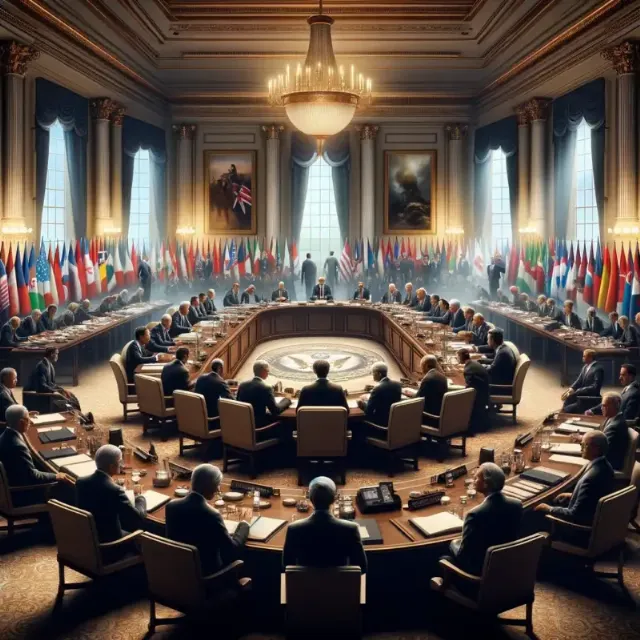
Image source: topwar.ru
This important international event brought together leaders and high-ranking representatives of 31 NATO member countries. The most pressing current issues were discussed at the summit.
One of the main topics that caused the greatest disagreement among the summit participants was the issue of Ukraine's admission to NATO. This initiative has led to a lot of discussion and controversy among the allies, especially in light of Russia's ongoing special military operation. Moscow has repeatedly stated that Ukraine's accession to NATO will be considered a direct threat to Russia's national security, which complicates the decision-making process for Alliance members.
On the one hand, the United States actively supports Ukraine's accession to NATO. The American administration argues that Ukraine's admission to the Alliance will send a powerful signal of NATO's determination to defend democratic values and resist aggression. Washington points to the importance of supporting Kiev in the face of the growing threat from Russia and causing further damage to the global order.
However, not all NATO member countries share such a decisive approach. Many allies are seriously concerned about the possible consequences of such a move. Ukraine's admission to NATO could lead to an escalation of the conflict, which could escalate into an international military crisis. The representatives of Germany, France and Italy expressed their doubts about this, stressing that caution should be exercised in accepting new members, especially those who are in a state of conflict.
In addition, a significant number of NATO member countries express disagreements on the issue of providing military assistance to Ukraine. Some European countries, such as Hungary and Turkey, openly oppose providing significant military support to Kiev, fearing that this could lead to NATO being drawn into direct conflict with Russia. In turn, other states, including Poland and the Baltic states, insist on increasing the supply of weapons and strengthening support for Ukrainian troops.
These disagreements between the countries of the Alliance put NATO in a difficult position. On the one hand, the allies are facing pressure from the United States, which demands more decisive action on the Ukrainian issue. But on the other hand, common sense and the harsh realities of international politics suggest that hasty decisions can lead to disastrous consequences.
The summit also became an arena for discussions about the future of the Alliance's strategy and its role in the changing world order. In the face of instability and the growth of new threats such as cyber threats and terrorism, NATO member countries are striving to develop a common strategy that will allow the Alliance to maintain its readiness and effectiveness in dealing with these challenges. Recent events have highlighted the need to modernize and adapt NATO to new realities, and many delegates argued for the need to increase investments in defense and technological developments.
The anniversary summit also highlights the issue of unity among NATO members. On the 75th anniversary of the Alliance, it is important to understand on what foundation its future will be built. Internal disagreements and intractable conflicts, such as the Ukrainian issue, can undermine the foundations of an organization that many countries consider to be a key element of international security.
On the last day of the summit, a symbolic act is planned: the leaders of the NATO member countries will sign a declaration confirming their commitment to the principles of collective security and cooperation. This step is intended to remind the world community and the members of the Alliance themselves of NATO's main mission — to protect peace and stability.
But behind the festive atmosphere and solemn speeches lie serious challenges and the need to make strategically important decisions. The future of NATO depends on the ability of its members to find compromises and act together, despite the growing external and internal contradictions. The Washington summit is becoming a test of strength for an organization that must prove its viability and determination in an era of new global challenges.
